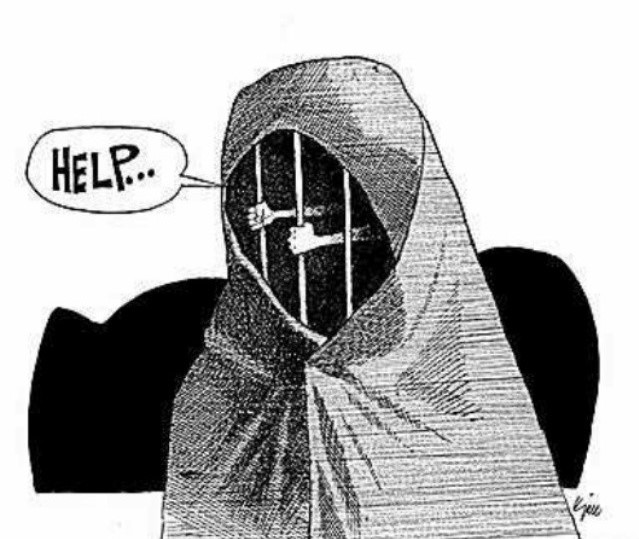As a result of the US-led liberation of Iraq in 2003, Iraqi society was forced to confront its past and inconsistencies, and a competition began between Iraq’s political and social components over who would play a key role in this new state and who would manage its resources Shi’a and Kurds fought for control of a state they had long considered as Arab Sunni-centric, and this competition often took place along ethnic and religious lines. However, there is also an internal scramble for dominance within Shi’a, Sunni, and Kurdish communities. The war is mostly between Shi’a and Sunni, and at times between Arab and Kurdish communities.[1]
In particular, the post-conflict Iraq, the issues of women within a Shia-domination have escalated. Because Islamic Sharia is open to a wide range of interpretations and can be interpreted in a progressive sense, the prominence of Islamic law in the new Iraq does not have to spell hardship for Iraqi women[2]. Yet, unfortunately, since the 2003, the conditions of women rights are in degradation, under a cover of Shi’a governance and interpretation of sharia.
In a recent proposed bill, women under the age of 12 can be married off to strangers (merely based on the approval of the male guardian).
Beside religious authority and women rights, in the recent years between 2013 and 2017, economic conditions deteriorated due to factors of rampaging inner terrorism and other conflicts, all contributed to worsening conditions. Within this period, the ratio of child marriage for young girls has exponentially increased, and the figures are staggering.[3] In parallel to civil unrest and economic recession, the primary influential parameter to women rights’ issues is interpretation and practicing of Islamic law, by male scholars and figures. Back in November of 2018, the religious agenda for early marriage ruled in Iraq’s parliament, when lawmakers approved a legislation allowing each of the country’s religious organizations to choose their own legal marriage age for girls. That age might be as early as nine for the majority Shiite sect of Iraqi Muslims. Only 13 of the 170 legislators in attendance voted against it.
Societal norms add to the problem. The Iraqi Muslim society places an important value on a woman’s “honor” prior to marriage. In consequence, families prefer to marry off daughters as early as possible to avoid the risk that their daughters may develop a negative reputation.
According to Islamic parties and religious figures, such as Hamid al-Khudhari, a member of the Islamic Virtue Party and a sponsor of the Iraqi marriage bill, he stated that marriage is the “greatest approach to safeguard young women from rape and harassment by providing them with the security of a husband and the blessings of religious matrimony.”
Critics like myself, argue that decreasing the consent age for marriage legalizes child sexual assault and prevents girls from pursuing school or entering the economy. Such bills of legalizing child marriage are a clear violation of international human rights’ agreements and normalizes pedophilia, as asserted by said Siham Wandi, a former Iraqi ambassador and child protection advocate. However, throughout Iraq, and the larger context of the Middle East, fundamentalists have sought to relax marriage-age limitations imposed by secular regimes.
Another whole issue in women rights’ violations that requires thorough investigation in Iraq is the so-called religious-based ‘pleasure’ marriage. This ‘Mut’aa’ marriage imprisons girls and women for brief periods of time in a temporary marriage, frequently to older men. In contemporary Iraq, and within the pilgrimage to sacred shrines in Karbala, and Najaf (mostly Iranian pilgrims), the numbers of pleasure marriage has skyrocketed. This has led to allowing for temporary child marriage. Unfortunately, the laws are very lenient and supportive of those practices. For instance, despite that, in Iraq, religious marriages are forbidden without a court order, yet are permitted with the payment of a minor fine.[4]
Unfortunately, Iraqi women rights’ violations are in rapid increase and the Shi’a-dominated authority is contributing to worsening conditions for women.
[1] Slim, Randa. 2019. Iraq: A Conflict Over State Identity and Ownership. Middle East Institute Press.
[2] Coleman, Isobel. 2006. “Women, Islam, and the New Iraq.” Foreign Affairs 85 (1): 24-38. https://doi.org/10.2307/20031840. http://www.jstor.org/stable/20031840.
[3] Child advocates worry it could rise even more.” The World, 2018. https://www.pri.org/stories/2018-08-13/early-marriage-figures-iraq-are-startling-child-advocates-worry-it-could-rise.
[4] (“Married by exception: Child marriage policies in the Middle East and North Africa” 2021)”Married by exception: Child marriage policies in the Middle East and North Africa.” 2021. 2021. https://www.pri.org/stories/2018-08-13/early-marriage-figures-iraq-are-startling-child-advocates-worry-it-could-rise.
